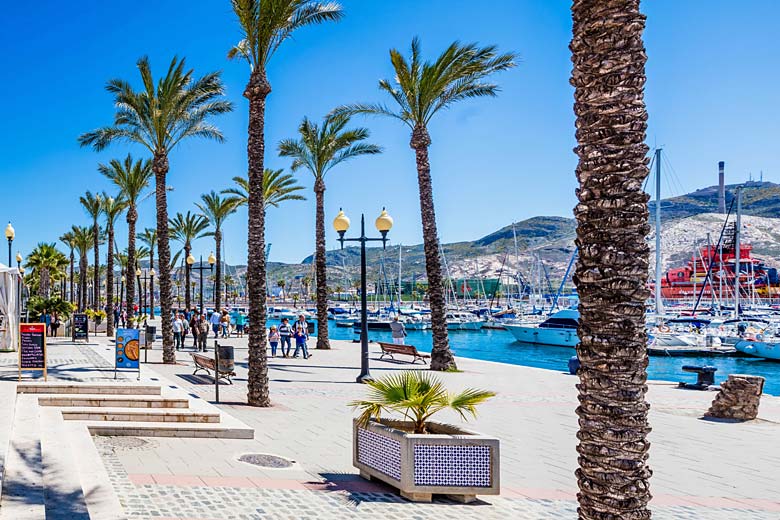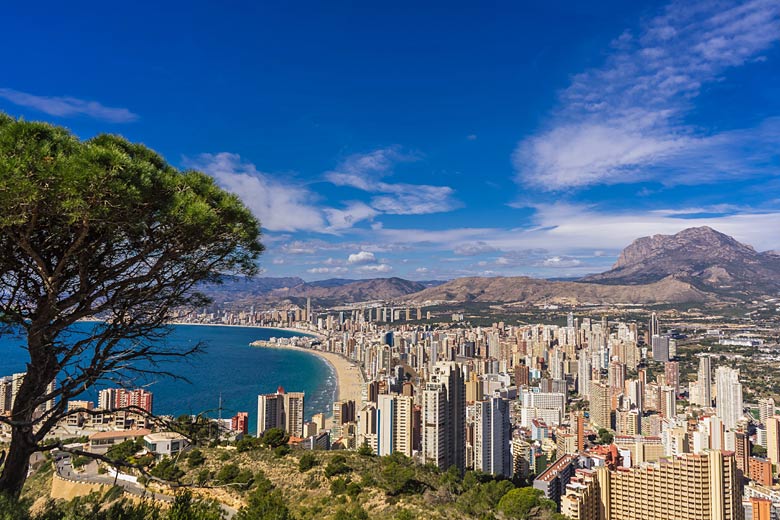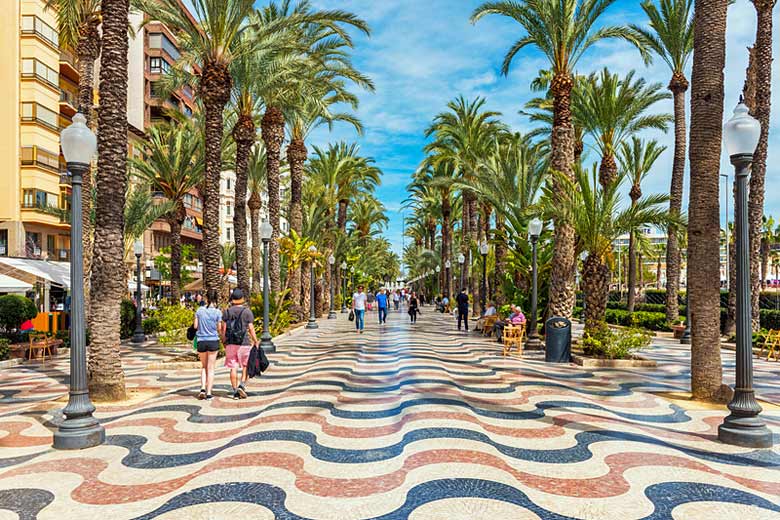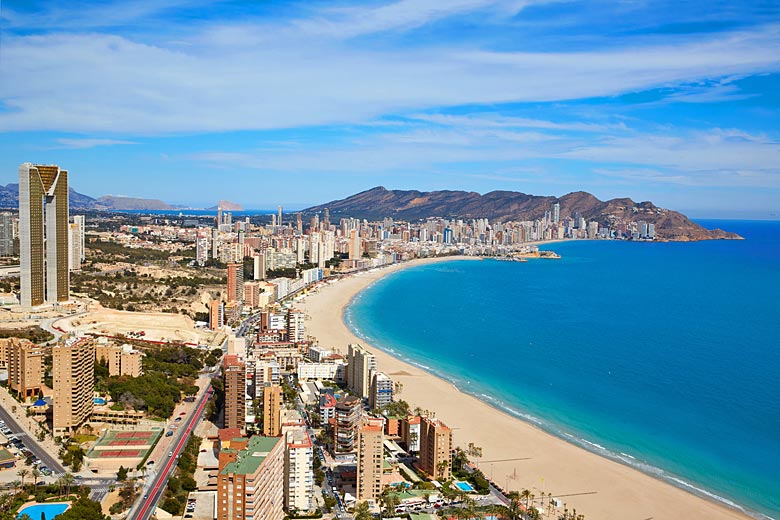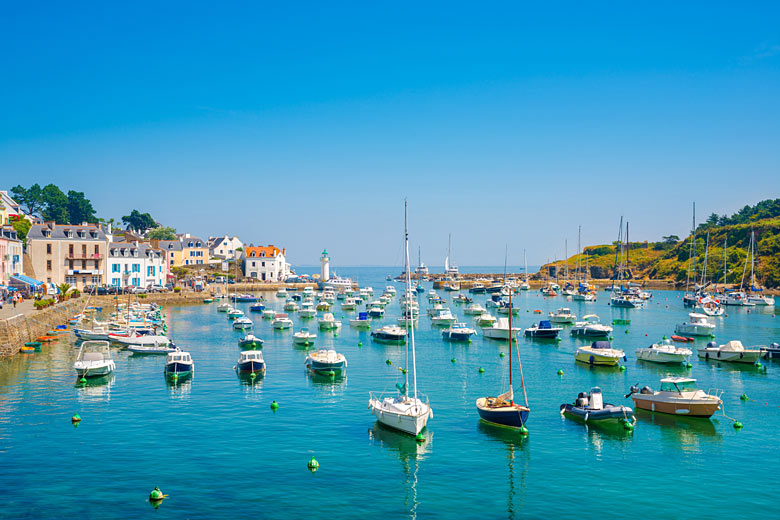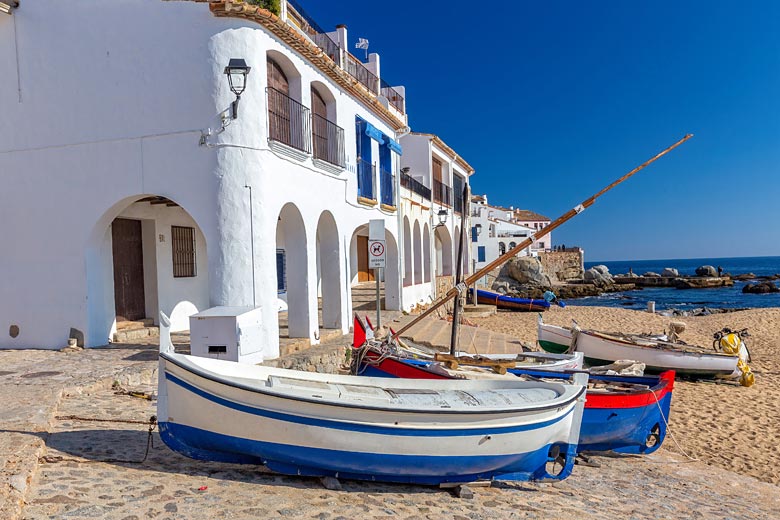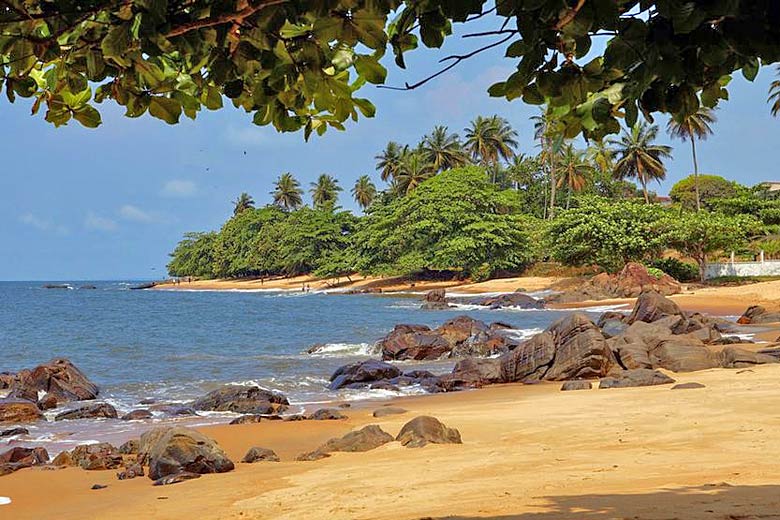- Book online with TUI & save up to 8% on holidays
- FREE child places available for select holidays
- Pay £0 deposits with direct debit & spread the cost
Best time to visit the Costa Blanca
Costa Blanca weather is some of the best to be found within easy reach for people living in Northern Europe. From most UK airports the flight time to Alicante is just two and a half hours.
- Best time to visit
- Weather by month
- 5-day weather forecast
- Destinations
- Travel advice
- Deals & discounts
Costa Blanca by month
Jan Feb Mar Apr May Jun Jul Aug Sep Oct Nov Dec
Recommended for the Costa Blanca
Top Costa Blanca destinations
Below are the temperatures expected today at popular countries, regions and places in the Costa Blanca. Select a destination to compare today's forecast with average weather conditions.
All Costa Blanca destinations
- Albir
- Alfaz del Pi
- Alicante
- Altea
- Benidorm
- Calpe
- Cartagena
- Denia
- El Campello
- Elche
- Guardamar del Segura
- Javea
- La Cala Finestrat
- La Manga
- Moraira
- Murcia
- Orihuela
- Pilar de la Horadada
- Playa de San Juan
- Puerto de Mazarron
- San Juan de Alicante
- Santa Pola
- Torrevieja
- Villajoyosa
When is the best time to visit Costa Blanca?
The best time to visit Costa Blanca (Benidorm) is June based on the following average weather conditions.
Maximum daytime temperature = 22 - 30°C [remove]
Daily hours of sunshine = 10 hours or more [remove]
Change the criteria to reflect your weather preferences.
Max Day Temperature (°C)
- Jan
 15
15 - Feb
 16
16 - Mar
 18
18 - Apr
 19
19 - May
 22
22 - Jun
 26
26 - Jul
 29
29 - Aug
 30
30 - Sep
 28
28 - Oct
 23
23 - Nov
 19
19 - Dec
 16
16
Which is the hottest month in the Costa Blanca?
The hottest time of year in Benidorm, Costa Blanca is normally August. Expect maximum daytime temperatures to reach 30°C with high heat and humidity.
Which month has the most rain in the Costa Blanca?
In terms of rainfall, October is usually the wettest month in Benidorm, Costa Blanca with 76mm on average. There are normally 10 days in October with some rain.
When is it sunniest in the Costa Blanca?
The sunniest time of year in Benidorm, Costa Blanca is normally July with bright sunshine on average for 72% of daylight hours; that's 11 hours of sunshine per day.
When is the sea warmest in the Costa Blanca?
The sea is usually at its warmest in Benidorm, Costa Blanca in August when the water temperature reaches 26°C.
Best time to visit
The weather guide for Costa Blanca (Benidorm) shows long term weather averages processed from data supplied by CRU (University of East Anglia) & today's weather forecast provided by meteoblue. Find out more about our data sources.
Metric (°C / mm) | Imperial (°F / inches)
Costa Blanca overview
The Costa Blanca, literally the 'White Coast', is a stretch of Spanish coastline that runs from Denia in the north to Cartagena in the south, a distance of about 250 kilometres. This includes the southern portion of the Costa Blanca also known as the Costa Calida.
There are two main airports, one at Alicante which is fairly central, and the other at San Javier which serves Murcia in the south; in the far north it is also possible to fly in and out through Valencia.
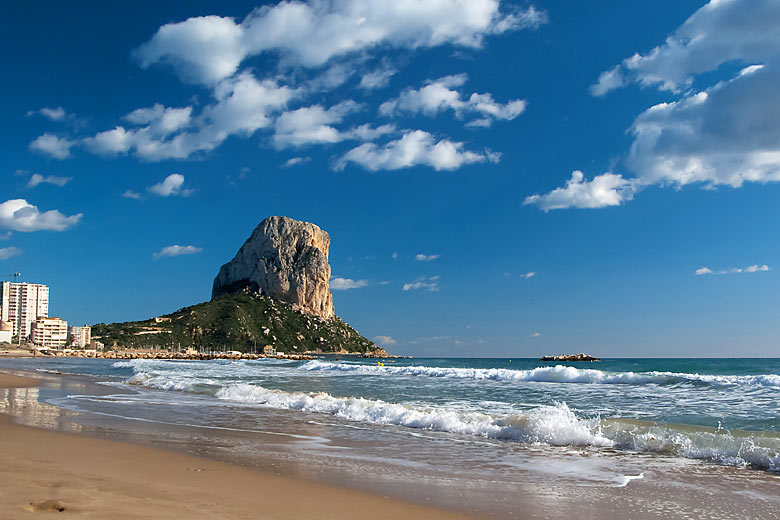
The climate of the Costa Blanca is generally very sunny, particularly from June to September when there is also little chance of rain.
Winters are cooler and cloudier - the time of year when the region receives most of its annual rainfall - but even in January daytime temperatures usually reach at least 15°C during the day and there are 5 hours of sunshine.
From the middle of March the weather improves steadily with every month an additional hour of sunshine a day, reaching 11 hours a day in July. Daytime maximum temperatures also rise steadily through these months from 20°C to 30°C.
In July and August you can expect temperatures in the afternoon to be in the low thirties Celsius but on exceptional occasions they can reach into the high thirties.
These are measurements of air temperature, which is always recorded in the shade. Out of the shade it can easily be another 15°C to 20°C warmer.
During the peak months of July and August heat and humidity is also generally high during the day which some travellers may find uncomfortably hot. Luckily on the coast the heat is usually moderated by cooling onshore breezes.
Inland in summer it is always much hotter. Sea temperatures are also at their warmest by the middle of August at around 25°C. This is still quite a bit cooler than the air temperature, so providing a welcome and refreshing contrast.
Fine Costa Blanca weather normally lasts until the end of October, though in the middle of September the summer drought usually ends and there are days with some rain. Evenings become noticeably cooler but temperatures during the day still rise into the twenties Celsius.
As in all other Mediterranean regions the Costa Blanca receives most of its rain during the winter months, particularly from October to the end of December.
The south east of Spain which includes the Costa Blanca and the Costa Almeria has the lowest rainfall of anywhere in Spain. Places on the coast usually have only 300 to 400 millimetres of rain in the whole year. This is about half the annual amount of rain that falls on Bournemouth.
But from year to year the amount of rain can vary considerably. On the last day of September 1997 nearly 300 mm of rain fell in the city of Alicante in one day, while in 1995 only 110mm fell in the whole year.
High winds can be a problem in winter especially where there are mountains set back from the coast. In summer the prevailing wind blows from the east off the sea while in winter it shifts to the west off the land, and can funnel down valleys onto the coast.
During the coldest months of January and February temperatures can very occasionally fall below zero at night but they usually stay above 5°C.
The first signs that winter is coming to an end appear with the almond blossom quite early in the year before the end of January. This does not mean that the weather cannot turn wet and windy in February and March but as the daylight hours get longer things gradually improve.
Generally Costa Blanca weather has something to offer in terms of sunshine and warmth in every month of the year compared with all countries to the north. In winter it is rarely very cold and in summer there is guaranteed sunshine.
What to pack for Costa Blanca weather
From May to the end of October daytime temperatures call for light cotton clothing, but in May and October an extra layer may be required in the evening when temperatures can fall below 15°C.
In winter warmer clothes are necessary though in any month between November and March it can be warm enough to sit in the sun in a cotton shirt if the wind is not blowing too strongly.
UV is very high from the beginning of June to the end of August so sunscreen and sunglasses are an absolute must during these months.
Costa Blanca travel features
Do you want to learn more about the Costa Blanca? Read our latest features covering travel tips and insider destination guides on where to go and what to do in the Costa Blanca.
Be inspired
Get your weekly fix of holiday inspiration from some of the world's best travel writers plus save on your next trip with the latest exclusive offers
We promise not to share your details
Related posts
Popular travel offers
Explore holidays in the sun for less
- Beach holidays
- Family holidays
- City breaks
- Summer holidays
- Winter sun holidays
- Holiday offers
- Top travel brands
- Airlines & flights
- Discount hotels
- Airport parking deals
- TUI
- Jet2holidays
- easyJet holidays
- Love Holidays
- January sales
Airport parking
- Manchester Airport
- Stansted Airport
- Bristol Airport
- Luton Airport
- Birmingham Airport
- Edinburgh Airport
- Gatwick Airport
- Glasgow Airport
- Newcastle Airport
Airport lounges
- Manchester Airport
- Birmingham Airport
- Bristol Airport
- Edinburgh Airport
- Glasgow Airport
- Heathrow Airport
- Newcastle Airport
- Stansted Airport
- Gatwick Airport











 TUI deal finder
TUI deal finder













